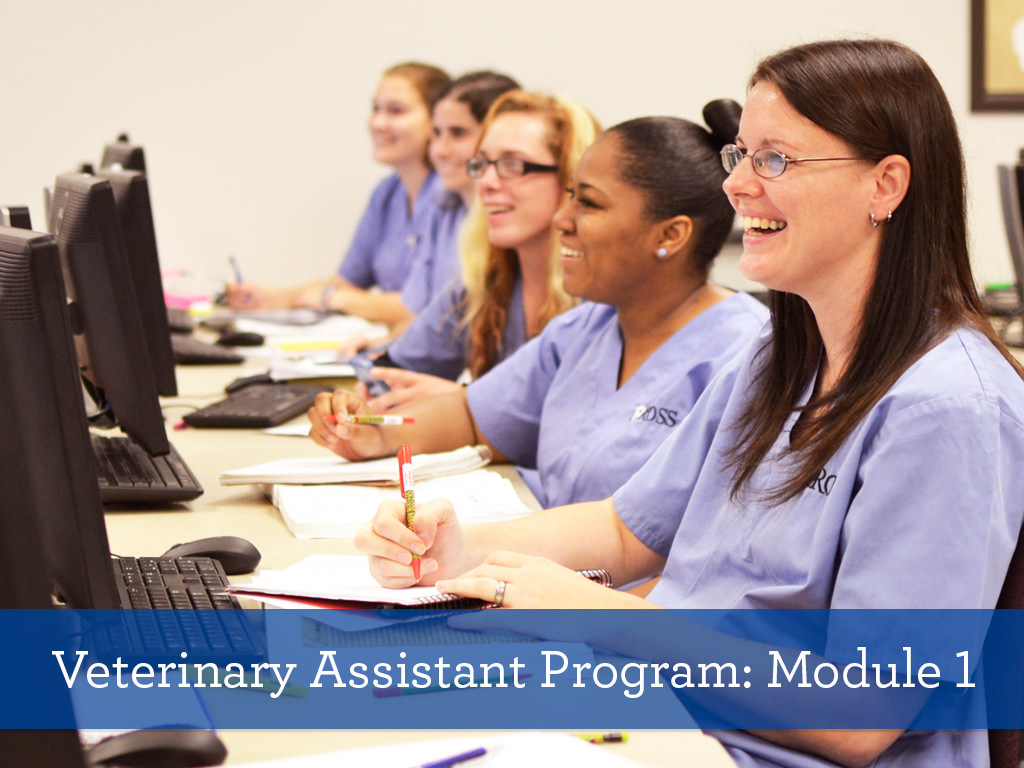 Clear and concise communication between members of the veterinary practice team is very important for quality care. Veterinary terminology is the language spoken by veterinary professionals and needs to be understood by all team members. In Module 1 of Ross Medical Education Center’s Veterinary Assistant program, students are taught to recognize, interpret, and use medical terminology with confidence. More than just memorizing words, the student will participate in hands on activities to help master the terminology. By learning the root words, suffixes and prefixes, the student will be empowered to understand and translate medical information – a critical skill in the veterinary field.
Clear and concise communication between members of the veterinary practice team is very important for quality care. Veterinary terminology is the language spoken by veterinary professionals and needs to be understood by all team members. In Module 1 of Ross Medical Education Center’s Veterinary Assistant program, students are taught to recognize, interpret, and use medical terminology with confidence. More than just memorizing words, the student will participate in hands on activities to help master the terminology. By learning the root words, suffixes and prefixes, the student will be empowered to understand and translate medical information – a critical skill in the veterinary field.
Students in this course will participate in hands-on activities and daily work to help learn this “second language.” As far as activities are concerned, a student favorite is the “build a word” activity in which students role a separate die for a prefix, suffix, and root word to design a medical term of their own. One student stated that at first “the words do not make any sense, but it really helps us remember the basics because we are having fun.” This course is designed to provide a strong foundation by providing the language basics that allow the student to comprehend the construction of terms.
This module also covers the ever growing technology that is found in the veterinary office. The student will be able to have hands-on experience with the computer software system, other computer based processes, and the automation in a veterinarian’s office. The course focuses on keyboarding and computer skills and their practical applications in the veterinary medicine setting. In this course, students learn ways to become an effective leader, and to identify different management styles. Resolving work conflict, effective delegation, and learning to identify methods to decrease loss in the practice are very important skills to have, and students have the opportunity to role play situations that can occur in the workplace.
